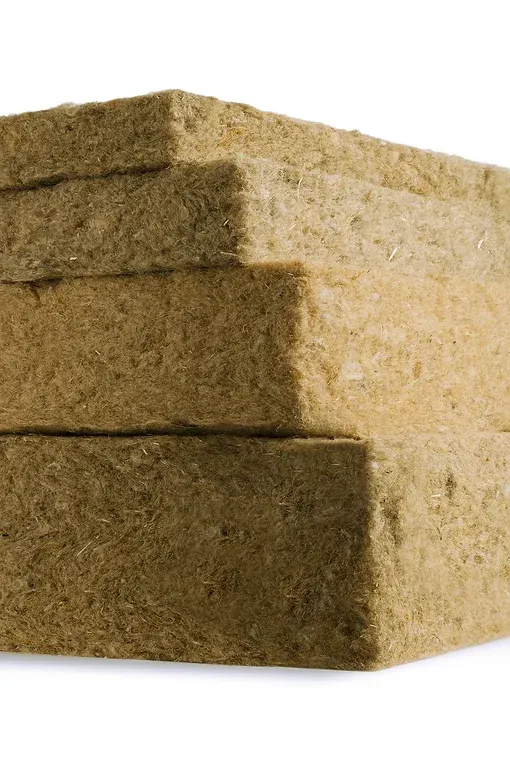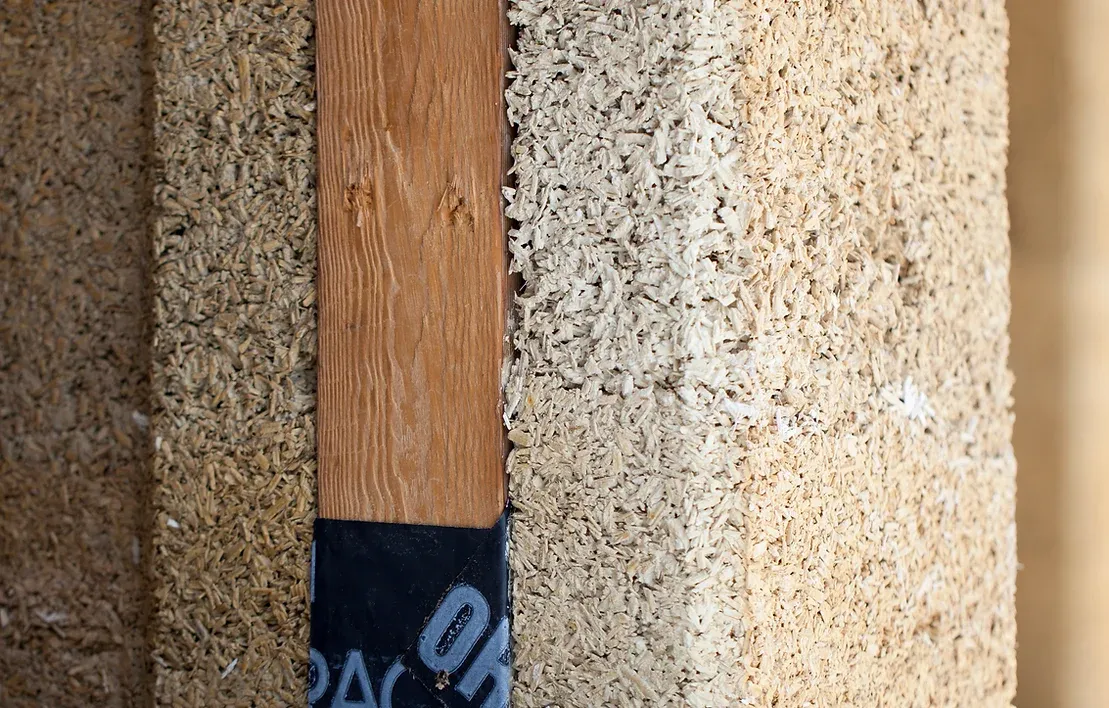Electricity consumption in building operations represents approximately 30% of global electricity consumption and accounts for 26% of global energy-related emissions, making it a significant contributor to climate change.
With green buildings on the rise, the construction sector is experiencing similar growth in technologies and materials aimed at enhancing the energy efficiency of the built environment. Optimal insulation, for example, is a key component in reducing the amount of energy needed for heating and cooling in buildings.
And bio-based thermal insulation options are gaining popularity in this space. While conventional insulation companies use non-biodegradable and toxic materials, Hempitecture offers eco-friendly and healthy insulation products made from natural fibers, such as hemp.
The Birth and Vision of Hempitecture
With a mission to create healthy, energy-efficient habitats, Matthew Mead and Tommy Gibbons founded Hempitecture in 2018. This Public Benefit Corporation focuses on providing bio-based building alternatives that are non-toxic, mold-resistant, pest-resistant, and carbon-negative.
Unlike conventional insulation materials, Hempitecture’s solutions not only remove carbon dioxide from the atmosphere but are also safe to touch, making them a better alternative for our planet and health. With Hempitecture’s bio-based materials, construction projects become more sustainable, healthier, and high-performing.
Hempitecture partnered with Idaho BaseCamp to design and build the first public facility in the U.S. made out of hemp.
The Power of Hemp in Hempitecture's Building Materials
As the name suggests, Hempitecture’s sustainable building materials are crafted from industrial hemp. The company’s flagship product, HempWool®, is made up of approximately 92% hemp fiber and 8% textile fiber binder. This combination of hemp fibers and textiles offers high-performing insulation and acoustic properties, all while being safe to handle and environmentally friendly.
Hemp’s thermal conductivity is comparable to that of conventional insulation products. However, hemp offers additional environmental benefits, making it a superior choice for green buildings. Apart from being one of the fastest-growing plants, hemp can thrive in various climate types and has the potential to enhance contaminated soils and prevent soil erosion.
And to make things better, hemp production removes more carbon dioxide from the atmosphere than the greenhouse gas emissions produced in the manufacturing of hemp-based insulation materials, making these bio-based materials carbon-negative and climate-friendly.
It’s important to note that hemp (C. sativa L.) is an annual C3 herbaceous plant in the Cannabis genus, belonging to the Cannabaceae family. Despite common misconceptions, hemp is not the same as marijuana, a psychoactive drug from the cannabis plant. The key distinction lies in their psychoactive component: tetrahydrocannabinol (THC). While hemp has 0.3% or less THC, marijuana’s THC content exceeds 0.3%, reaching levels sufficient to induce hallucinations.
Exploring Hempitecture's Bio-Based Insulation Solutions
Hempitecture offers bio-based thermal insulation products that contribute to healthier indoor quality while enhancing the energy efficiency of residential and commercial buildings. Unlike synthetic insulation products, these biomaterials are safe to handle and enable construction companies to reduce the carbon footprint of their projects:
HempWool®

HempWool® is Hempitecture’s flagship product. This plant-based insulation product is a USDA Certified Biobased Material, with 89.9% certified biobased content. Administered under the USDA’s BioPreferred Program, this label assures consumers that a manufacturer's claims regarding the biobased content of a product are third-party certified and rigorously monitored by the USDA.
HempWool® Thermal Insulation is non-toxic, phase shift regulator, mold-resistant, and pest-resistant. Therefore, this eco-friendly insulation product can be used in flooring, ceilings, walls, vans, RVs, modular homes, and more. Since the final product does not contain VOCs, installers can safely handle HempWool®.
According to the U.S. Department of Energy, testing showed a noticeable energy and humidity benefit from Hempitecture’s HempWool compared to traditional fiberglass insulation. Hempitecture’s bio-based alternative demonstrates a superior ability to absorb, store, and release heat while resisting heat transfer. Additionally, testing confirmed that the wall using fiberglass insulation had more moisture compared to the wall using hemp insulation.
Hempcrete®

Hempcrete, also known as Hemp Lime, is a sustainable building material made from hemp hurd, lime binder, and water. This biobased product is mixed on-site and then tamped into place.
According to Hempitecture, Hempcrete has excellent insulating properties, reducing buildings’ energy consumption for heating and cooling. Although Hempcrete is not a structural concrete replacement, it can be used for thermal envelope applications to separate the air inside the building from the air outside.
Final Thoughts
Optimal insulation materials can minimize a building’s energy consumption and reduce energy costs. However, most insulation materials contribute to poor indoor quality and can affect installers’ health if mishandled.
While fiberglass and mineral wool are the most commonly used materials for insulation, hemp wool is a sustainable, bio-based alternative that is gaining popularity. And Hempitecture is one of the few companies commercializing these products.
Unlike conventional insulation materials, hemp wool doesn’t contain VOCs or chemical binders. Additionally, this sustainable alternative does not off-gas and can be composted at the end of its life, making it a healthy, eco-friendly, and high-performing insulation material.
Learn More About Hempitecture:






